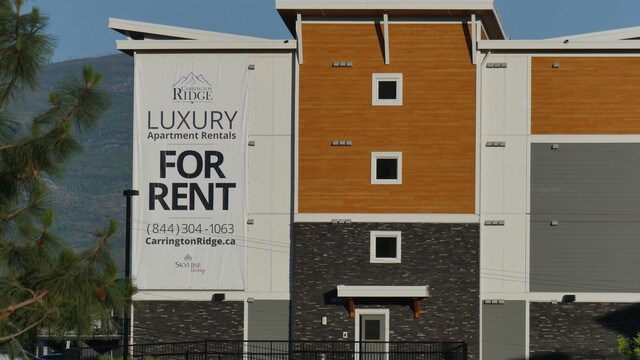For years, the development market in Kelowna was heavily skewed to the for-sale condo market.
As the rental vacancy rate dropped dangerously close to zero, the city tried numerous incentives to induce developers to build much-needed rental units across the city.
Over the past year, as interest rates climbed and incentives, both from the city and federal government strengthened, the development market has done a complete 180 degree turn.
The number of rentals being approved by city council and entering the pipeline have far outpaced the for sale market.
This month alone, Kelowna city council has approved 445 rental units while another 880 have entered the pipeline, more than half of those near . That doesn’t include two city-initiated middle income projects set for which could begin later this year.
City housing and policy manager James Moore says this is good news.
“We have been suffering from a chronically low vacancy rate for a really long time and that has allowed rents to increase faster than I think a lot of renters can afford,” Moore told Castanet News.
“It’s great to see a lot of new rentals coming on stream in the next while. A very healthy supply is a positive step forward.”
One of the key drivers for the change, according to Moore is simple macro-economics - the cost of doing business.
“I think that gets down to the cost environment and the interest rate environment that has happened over the past couple of years that has had a significant impact on the development industry.
“Those traditional for sale or strata products don’t pencil out very well, so they are not happening.”
Put simply, it’s easier for developers to get financing for rentals than condos.
“From our perspective, rental projects are financeable. There is low-cost, high-ratio CMHC financing available for rental housing,” said Jeff Kennedy, VP of investments and development for Troika, who traditionally do both condo and rental projects.
“In contrast, you are looking at expensive financing, heavily conditioned financing to build condos in a market where it’s harder or impossible to get pre-sales.
“If you are working with a financial institution, to build a condo project you have to sell 60, 70, 80 per cent of that building and people just aren’t able to do that.”
Kennedy says they believe a tenant can occupy a two-bedroom rental at a fraction of the price of owning a low or mid-rise condo.
“In general, that’s a huge part of our long-term rental thesis. There are going to be more people renting for a longer period of time,” said Kennedy.
“The rate of home ownership is going down.”
The City of Kelowna is also helping to incentivize the rental construction market.
Moore points to the new rental-only sub-zone introduced by the city which allows for a reduction in permitted parking, and density bonusing on height while Kennedy applauds the city’s revitalization tax exemption.
“It abates a large portion of the property taxes for rental housing for a period of 10 years. That really moves the needle,” said Kennedy, who also acknowledged the city is very easy to work with.
The increase in rental projects will also help the city meet targets imposed by both the provincial and federal government.
The province, through new legislation, has set a five-year target of 8,774 new units including 5,921 rentals while Ottawa has established a target of 7,430 new units by 2026 as part of the $31.5 million provided through the Housing Accelerator Fund.
Moore says ideally a near 50-50 split of rental and for-sale projects is ideal but admits the reality will always fluctuate.
“Different types of development go through different cycles,” said Moore.
“We might predict what it could be over the long-term or what an ideal amount of rental we think will be needed over the long-term to meet our local needs.
“Right now, we are in a real up market for rental, but that won’t last forever.
“There will be a time when rentals decrease and the number of strata will go up again when conditions are more favourable.”



